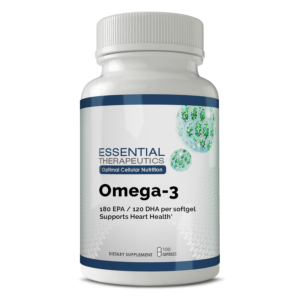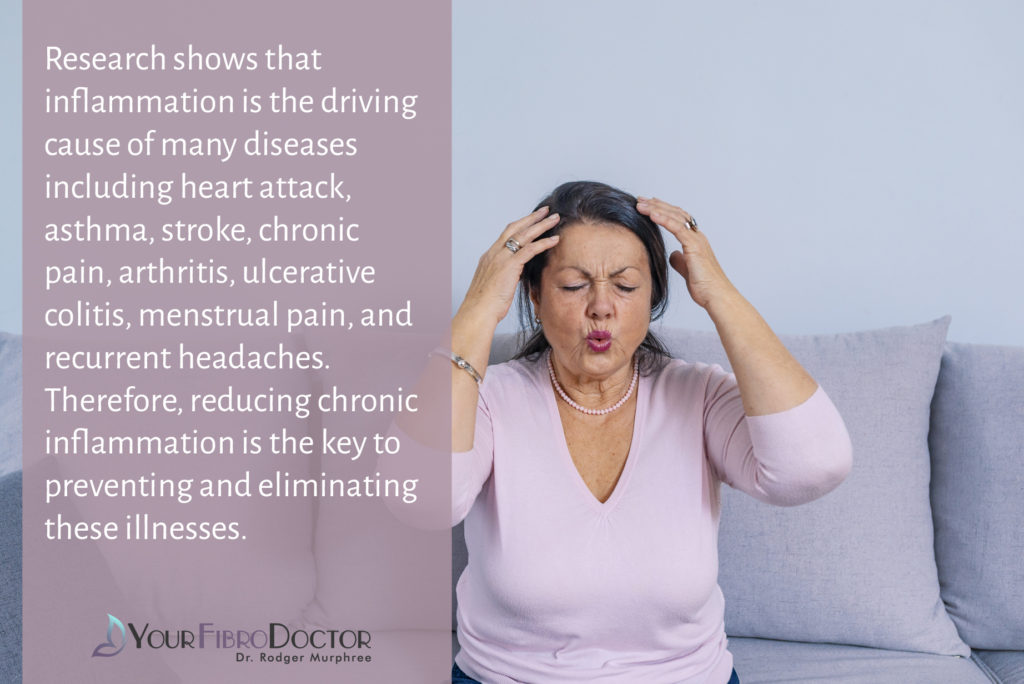Don’t Worry About the Fat
 People who want to maintain a healthy weight over time shouldn’t obsess about their fat intake, new research shows.
People who want to maintain a healthy weight over time shouldn’t obsess about their fat intake, new research shows.
Dr. Nita Forouhi of the Institute of Metabolic Science, Addenbrooke’s Hospital, Cambridge, UK, and her colleagues found that the percentage of calories that a person got from fat, as opposed to protein or carbohydrates, had nothing to do with how much weight they gained in the coming years. And the kinds of fat they ate didn’t matter either.
The findings, Forouhi noted in an email to Reuters Health, show that “it is more important to aim for a healthy lifestyle including a balanced, healthy diet and regular physical activity, than to focus on fat intake alone as a factor for weight gain.” To investigate, they looked at data on nearly 90,000 men and women from six different countries participating in the European Prospective Investigation into Cancer and Nutrition Study. Participants were followed for up to 10 years. Average fat intake ranged from 31.5 percent to 36.5 percent of total calories. On average, people gained about a quarter of a pound every year. But analyses that accounted for several factors found no relationship between how much weight people gained and how much fat they ate, or their intake of polyunsaturated fats versus saturated fats. The findings shouldn’t be seen as showing that people can eat as much fat as they want, Forouhi said. “That would be absurd, given so much evidence that already exists on the potential harms of diets high in saturated or trans-fats for heart health for instance,” the researcher said. In the US, she added, dietary recommendations state that people should maintain a fat intake that is 20 percent to 35 percent of total calories, and eat “healthy” fats from fish, nuts, and vegetable oils instead of “unhealthy” saturated and trans-fats.
She added, “The healthiest way to avoid weight gain is to make sure that, when appropriate, total calorie intake is limited by reducing one’s intake of added sugars, fats, and alcohol, which all provide calories but few or no essential nutrients, to watch portion sizes of food (so food portions consumed do not increase in size over time), and at the same time, take regular physical activity.”
Fish on Drugs
 Over one billion people now depend upon fish as their main source of animal protein, with billions more relying on it as an important part of their diets. As the world population continues to grow, so will the demand for fish. It is estimated that an additional 16 million tons of fish annually will be needed by the year 2010. Unfortunately, the wild fish harvest from the oceans peaked in the late 1980s with little hope that it will ever return to those levels again.
Over one billion people now depend upon fish as their main source of animal protein, with billions more relying on it as an important part of their diets. As the world population continues to grow, so will the demand for fish. It is estimated that an additional 16 million tons of fish annually will be needed by the year 2010. Unfortunately, the wild fish harvest from the oceans peaked in the late 1980s with little hope that it will ever return to those levels again.
New methods of fish farming have been developed to maximize production, and this has led to severe environmental problems. For example, expansion of shrimp farms in developing countries had resulted in a staggering loss of tidal flats, mangrove forests, and wetlands where the farms are commonly sited.
Because of overcrowding and unnatural conditions, disease is unavoidable in commercially farmed fish, so fish farmers must rely on the use of drugs to keep their stocks alive. The Food and Drug Administration (FDA) has approved five drugs for use in food fishóTerramycine (an antibiotic), Sulfamerazine (an antibiotic), Romet 30 (an antibiotic), Finquel (an anesthetic), and Formalin (a parasiticide).
The FDA’s Center for Veterinary Medicine (CVM) is responsible for approving drugs for use in animals, but it does not carry out routine inspections for enforcement purposes. In 1991, the National Academy of Sciences concluded that chemicals are not effectively controlled in fish farming under current conditions, and advised that additional safety studies be conducted on contaminant risks.
Under the FDA’s Investigational New Animal Drug Exemptions, experimental drugs can be used on fish. These treated fish can later be sold on the market, even though these experimental drugs have not yet received safety testing. Another drug-related risk comes from the numerous drugs permitted by those countries from which we import much of our fish. While the FDA only considers five drugs adequately tested, European authorities have approved 15 drugs, while Japan allows 24.
 I highly recommend a diet rich in deep cold-water fish. Try to look for organic-raised fish, free of potentially dangerous drugs. Fish oil supplements offer a great way to reduce your risk of stroke, heart attack, and heart disease.
I highly recommend a diet rich in deep cold-water fish. Try to look for organic-raised fish, free of potentially dangerous drugs. Fish oil supplements offer a great way to reduce your risk of stroke, heart attack, and heart disease.
In fact Andrew L Stoll, MD, in his book The Omega 3 Connection has this to say, “The implications of omega-3 deficiency on the brain are profound and span the entire human life cycle. Beginning in pregnancy, premature birth and its potential neurologic complications may result from omega-3 deficiency. Babies who are bottle fed or born from omega-3-deficient mothers will lack the omega-3 fatty acids necessary for optimal cognitive and visual development. Children deprived of omega-3s may have less ability to pay attention and control impulsive behavior and may be at higher risk for depression.
Teenagers and adults with omega-3 deficiency may be more prone to hostility or violence. In aging, the loss of omega-3 fatty acids in the brain may result in a higher risk of stroke, memory problems, or dementia. Individuals of any age without adequate amounts of omega-3 fatty acids in the brain and body may also be at higher risk for depression, bipolar disorder, and possibly other psychiatric disorders.”
There are many health benefits of omega-3 fatty acids. Research shows strong evidence that the omega-3s EPA and DHA can help lower triglycerides and blood pressure. And there are studies showing that omega-3 fatty acids may help with other conditions, including rheumatoid arthritis, poor immune function, inflammation, depression, and many other health challenges.
Omega 3 rich foods, green leafy vegetables, flax seeds, and cold water fish, boost natural anti-inflammatory hormones. Omega 3 foods reduce inflammation and disease processes. The main source of omega 3 fats, are deep cold water fish.
Fish high in Omega 3’s
Fish high in DHA and EPA omega-3 fatty acids include:
- anchovies
- bluefish
- herring
- mackerel
- salmon (wild has more omega-3s than farmed)
- sardines
- sturgeon
- lake trout
- tuna
Many experts recommend eating these fish two to three times a week.

Good food sources of another oil, ALA — which is converted into omega-3 fatty acids in the body — include:
- walnuts
- flax and flaxseed oil
- canola oil
- olive oil
Unfortunately for many, genetic limitations prevent them from converting ALA foods into EPA. This is why I recommend everyone take a daily fish oil supplement.
Fish Oil Supplementation
Rheumatoid arthritis. A number of studies have found that fish oil supplements [EPA+DHA] significantly reduced stiffness and joint pain. Omega-3 supplements also seem to boost the effectiveness of anti-inflammatory drugs.
Depression. Research continues to show that cultures that eat foods with high levels of omega-3s, have lower levels of depression. Fish oil supplementation also seems to boost the effects of antidepressants. Fish oil may help reduce the “lows” in depressive symptoms of bipolar disorder.
Prenatal health. DHA is vital for visual and neurological development in infants.
Asthma. Evidence shows that a diet high in omega 3s reduces inflammation, a key component in asthma.
ADHD. Several studies show that fish oil can reduce the symptoms of ADHD in some children and improve their cognitive function.
Blood fat [triglycerides]. According to a number of studies, fish oil supplements can lower elevated triglyceride levels. Having high levels of this blood fat is a risk factor for heart disease. DHA alone has also been shown to lower triglycerides.
I recommend taking 2,000mg of pure fish oil or 1,000mg of Krill oil a day.
The evidence is preliminary, but some research suggests that omega-3s may help protect against Alzheimer’s disease and dementia. Recent studies have also evaluated whether the omega-3 supplement DHA can slow the decline seen in those with Alzheimer’s dementia or in age-associated memory impairment. One recent study showed that DHA can be a beneficial supplement and may have a positive effect on gradual memory loss associated with aging.
Omega 6 rich foods, whole grains, seeds, seed oils, and corn, are healthy in moderation. However, excess consumption of these foods, leads to excess production of arachidonic acid (AA) and eicosanoids.
AA is derived from the Omega 6 essential fatty acid foods (grains, flour, seeds, seed oils, corn, and grain-fed livestock), excess sugar, and trans-fatty acids. AA and eicosanoids create chain reactions that produce inflammation.
Arachidonic acid stimulates the production of inflammatory chemicals including leukotriens (notorious in causing allergic reactions), thromboxanes, and prostacylins. Several research articles have demonstrated that the more animal fats a human eats, the more arachidonic acid they have in their blood and cell membranes and the more likely to have inflammation. Conversely, a diet high in fish oils promotes less inflammation and a lower level of inflammatory chemicals.

Recently, a great deal of interest has been paid to the ratio of the fatty acids arachidonic acid (AA) to eicosapentaenoic acid (EPA), in omega 3 fatty acids. According to Dr. Barry Sears, author of Toxic Fat: When Good Fat Turns Bad, a lower AA/EPA ratio indicates a better balance of “good” and “bad” eicosanoids in your body. An AA/EPA ratio of less than 3 but not less than 1.5 is considered to be ideal.
The average AA/EPA of Americans is approximately 11:1. In patients with inflammatory conditions and neurological disorders, the AA/EPA ratio is 20:1 or more. An AA/EPA ratio of 1.5:1 is considered ideal. This is the ratio found in Japanese populations, which have the highest life expectancy and the lowest rate of cardiovascular disease.
Your goal should be to raise your omega 3 intake through diet and fish oil supplementation. And at the same time, to create a healthier EPA/AA ratio, you should reduce your intake of omega 6 foods. Reduce your intake of vegetable oils (use olive oil and coconut oils), grains, and grain fed livestock.
Natural Oils Versus Refined Oils
Natural oils are derived from pressing seeds and nuts. These include sunflower, cotton, corn, olive, canola, and almond oils. Unsaturated fatty acids have one or more double bonds between carbon atoms in their chain. These naturally occurring CIS, or double bonds, allow non-animal fats to remain liquid at room temperature.
Refined oils undergo deodorization, bleaching, and a hydrogenation processes. These processes remove lecithin, beta-carotene, essential fatty acids, and the antioxidant vitamin E. Hydrogenation is the process of adding hydrogen atoms to polyunsaturated oils for the purpose of creating solid saturated fats like margarine. Natural oils are heated under pressure for six to eight hours at 248 to 410 degrees F and reacted with hydrogen gas by using a metal like nickel or copper, producing trans fatty acids. Both of these heavy metals are linked to mental depression and fatigue.
These naturally, unsaturated, CIS-containing fats, are poisoned by heating them up and hydrogenating the double CIS bond into the man-made trans fatty acid.
Trans fatty acids prevent the Omega-6 and Omega-3 essential fatty acids from attaching to their receptors on cell membranes. This makes the membranes, which regulate what goes into and out of a cell, impermeable. Because nutrients can’t get in and toxins can’t get out, the membranes begin to die.
Food labels with trans fatty acids will read as follows: partially hydrogenated, enriched (breads), made with one or more of the following oils, corn, safflower, cottonseed, or other vegetable or seed oils.
The American public has been misled into believing that vegetable oils are good for them. The American Heart Association, who unbelievably advocates the use of margarine, has promoted this. Margarine is made up of 15 to 50% trans fatty acids. Processed vegetable oils, devoid of healthy essential fatty acids, are primarily toxic, trans fatty acids in a bottle.
A Harvard study found that women who ate four or more teaspoons of margarine a day had a 50% greater risk of developing hbeart disease compared those who rarely ate margarine.
A two percent increase in trans fatty acid intake increases the risk of developing diabetes by 39%.
Individuals increase their risk of developing coronary heart disease by a whopping 25% for every two percent increase in trans fatty consumption.
For healthy foods, look for labels that say “made from cold expeller pressed oils.”
Avoid margarine, enriched breads, foods cooked with vegetable oils (unless they state “expeller pressed oils” or “no trans fats”), and hydrogenated or partially hydrogenated oils.
Use olive oil, coconut (my favorite) or canola oil to cook with. These oils can withstand a higher cooking temperature before turning into trans fats. I recommend you use extra virgin expeller pressed olive oil.
When purchasing fish oil supplements, make sure you get a pure supplement free of harmful chemicals. I recommend the Essential Therapeutics line of fish oil supplements – they’re pure and free of potential toxins. Read more about Essential Therapeutics Pure High Dose Fish Oil Here.
I know of no more encouraging fact than the unquestionable ability of man to elevate his life by conscious endeavor.
-Henry David Thoreau
Are You a Proactive or Reactive Person?
 “Our behavior is a function of our desires, not our conditions. We can subordinate feelings to values. We have the initiative and responsibility to make things happen… responsibility – response-ability – the ability to choose our response. Reactive people are driven by feelings, by circumstances, by conditions, by their environment. Proactive people are driven by their values – carefully thought about, selected and internalized values… It’s not what happens to us, but our response to what happens to us that matters.”
“Our behavior is a function of our desires, not our conditions. We can subordinate feelings to values. We have the initiative and responsibility to make things happen… responsibility – response-ability – the ability to choose our response. Reactive people are driven by feelings, by circumstances, by conditions, by their environment. Proactive people are driven by their values – carefully thought about, selected and internalized values… It’s not what happens to us, but our response to what happens to us that matters.”
From Stephen Covey’s best-selling book, The Seven Habits of Highly Effective People. (If you’re one of the few people left on the planet who’ve not read this book, stop right now and order from Amazon immediately – ok, maybe after you read this letter first.)
Reactive people complain about the weather, their marriage, their jobs, their weight, their finances, and their poor health. They sleepwalk through life feeling like helpless victims. Proactive people take the initiative. They realize “if it is to be, it is up to me.” They know that they can change their circumstances by merely determining to do so. Proactive people don’t complain about being overweight; they make a plan and start a course for losing any unwanted weight. Proactive people don’t squander their lives by feeling like helpless victims. Instead they look ahead, take the initiative, and make things happen. Covey writes “the difference between people who exercise initiative and those who don’t is literally the difference between night and day. I’m not talking about a 25 to 50 percent difference in effectiveness; I’m talking about 5000-plus percent difference.…”
Here are some examples of reactive thinking:
- There’s nothing I can do.
- That’s just the way it is.
- That’s just the way I am.
- They won’t let me.
- It’s too difficult.
- He/she/they/it makes me so mad, sad, frustrated, tense.
- I can’t.
- If only I…
Here’s some proactive thinking:
- Let’s look at our alternatives.
- I can choose a different approach if needed.
- I control my feelings and responses.
- I choose how to respond.
- I can do it.
- I’ll find out how.
Stephen Covey’s The 7 Habits of Highly Successful People is one the most important books I’ve ever read, one that changed my life from the moment I read it 20 years ago. I still pick up this book up at least once a year to review and reflect on the sage words and advice contained between its covers. If you’ve not read this book, please make the time to do so.
Boswellia Serrata for Asthma
Indian and German researchers conducted the first study of boswellia’s effect on the symptoms of asthma. The double-blind, randomized pilot study involved 80 patients with a history of asthma. Seventy percent of patients treated with 900mg of powdered boswellia gum resin per day showed a significant decrease in symptoms after six weeks.
Twenty-seven percent of control group patients (treated with lactose) showed improvement. Boswellic acids in the resin have been shown to inhibit the synthesis of leukotrienes, which trigger many of the symptoms associated with asthma. While boswellia has long been used in Ayurvedic medicine, clinical studies on its medicinal benefits are scarce. The authors suggest further studies using a standardized resin product at variable doses.